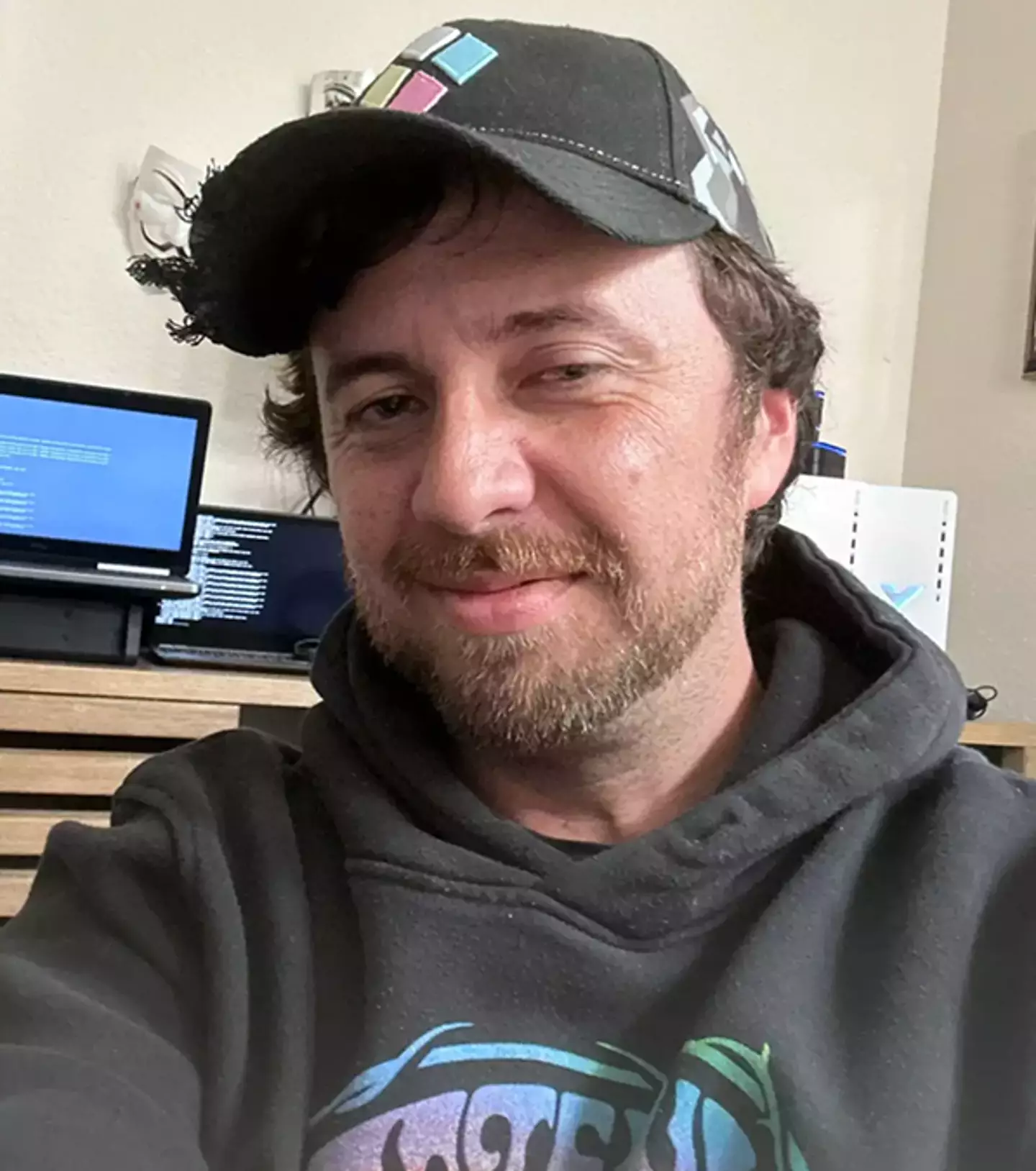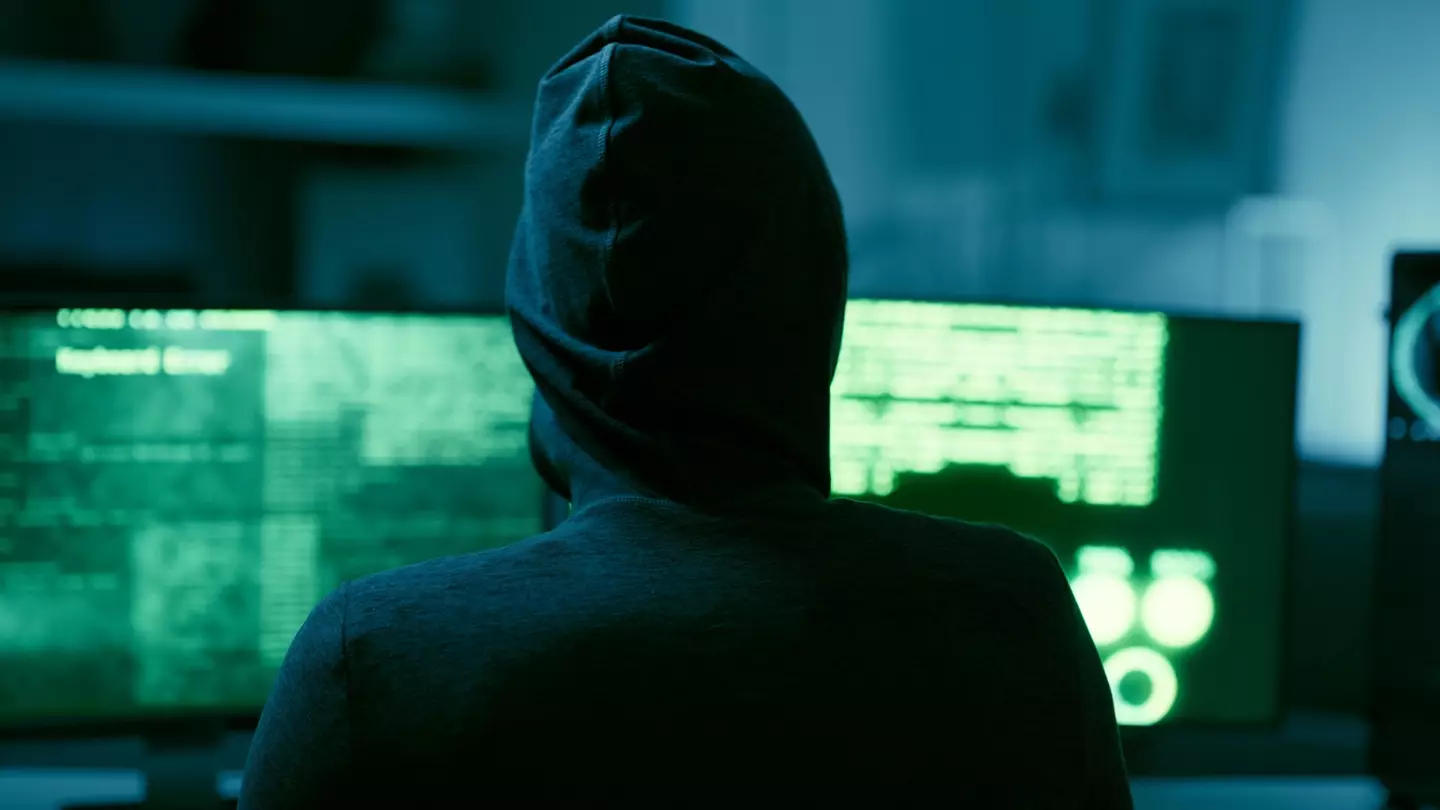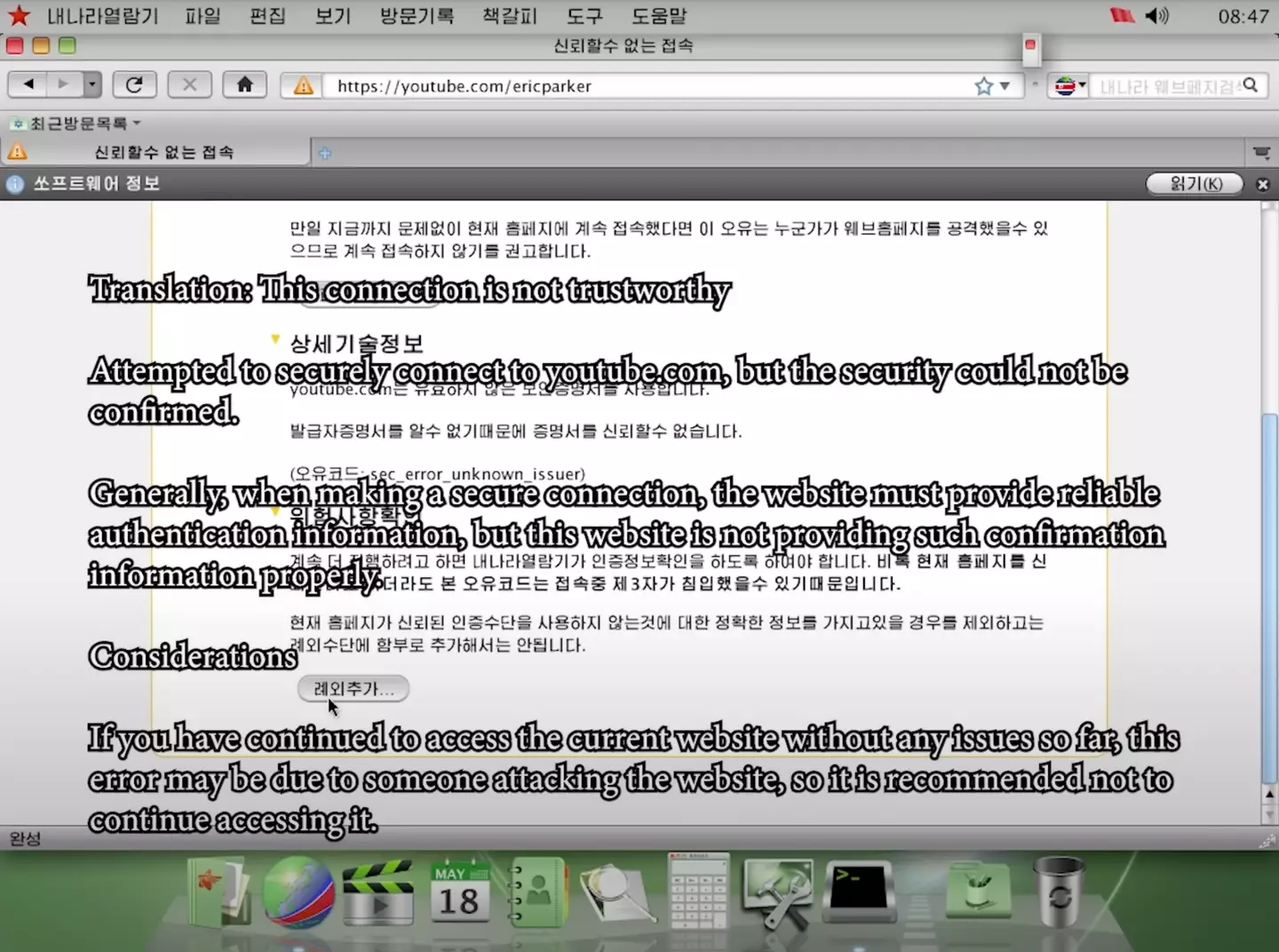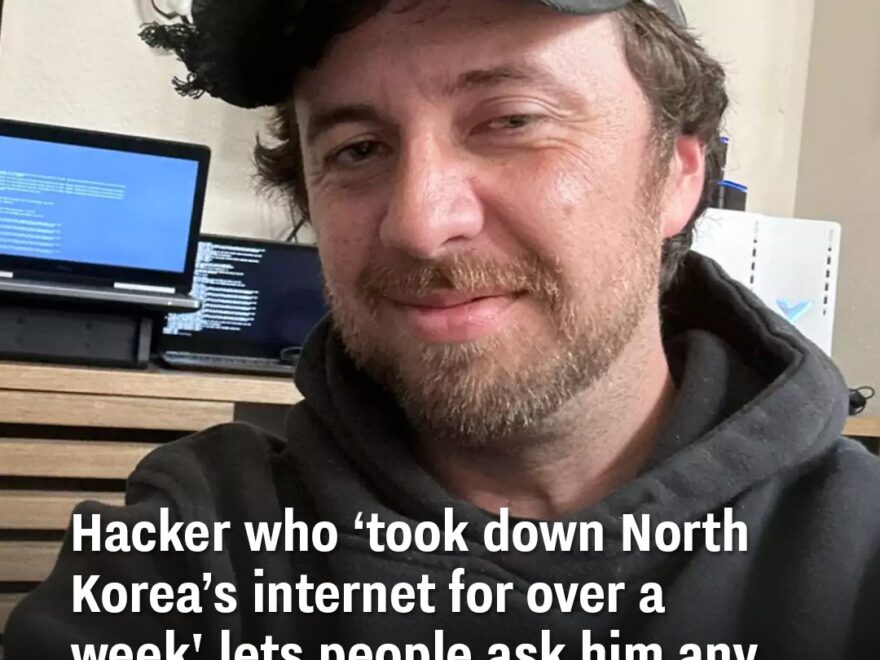A hacker who famously ‘brought down North Korea’s internet for over a week’ has invited the internet to ‘ask him anything’ about it.
If you missed the story, hacker Alejandro Caceres, who goes by the name of P4x, brought down the servers hosting North Korea’s websites and email services offline with distributed denial-of-service (DDoS) attacks.
Unlike most hackers who work with a team, Caceres operated alone from his coastal Florida home in January 2022 – convincing the U.S. government that what he was doing was right.
Caceres had been personally targeted by North Korean spies in the past, who attempted to steal his intrusion tools, leading him to seek revenge.
‘It felt like the right thing to do here,’ he told WIRED at the time. ‘If they don’t see we have teeth, it’s just going to keep coming.’


X/@_hyp3ri0n
Now, two months after this impressive act, Caceres has opened up in a lengthy Reddit thread, offering to answer any questions about it.
‘Recently I was on NPR’s The World and a bunch of other sh**,’ he wrote on the forum.
‘Anyway, AMA about the hack, personal stuff, whatever! Happy to answer. I have not yet been murdered or arrested, so that’s pretty good.’
Of course, the first question is whether it was ‘hard’ to take down North Korea’s network.
He replied: ‘Honestly I’ve been asked this a lot. And I can’t really tell haha. I used to say nah it wasn’t that hard.
‘But then I told people how I did it and they were like “well ok, it wasn’t hard but only because you’re trained in this….”‘
Another Reddit user asked the hacker what he feels are the most likely consequences of his actions.
‘so far the only “consequences” is every DoD entity and intelligence agencies want to know how I did it. I’ve been presenting it to them for a little bit now,’ he responded.


KRISTINA KORMILITSYNA / Contributor / Getty
‘Nothing negative yet honestly. Everyone seems to sort of like it but cannot say that officially. Honestly, I expected a LOT more negativity just because that’s the natural order of things.’
Journalists have also had their turn in asking Caceres questions, NK News questioned: ‘How much awareness did you have about North Korea’s internet infrastructure and cyber operations before they started targeting you?’
Caceres said: ‘Not that much. There are people that know a lot, people that are experts in this. I was definitely not an expert.
‘Of course, I was an expert in computers and hacking at that point. But in terms of North Korea in particular, I knew a little bit more than the basics.’
Kindly, another Reddit user advised Caceres to ‘avoid airports in SE asia’ for the sake of his safety.
Featured Image Credit: X / @_hyp3ri0n / KRISTINA KORMILITSYNA / Contributor / Getty


A hacker who incredibly ‘brought down North Korea’s internet for over a week’ has revealed one thing that it taught him about the country.
The hacker, who goes by the name of P4x, gave people online the chance to ‘ask him anything’ about how he took down the country’s internet network.
He shared how he worked alone at his home in Florida to complete the hack.
.webp)
.webp)
Alejandro Caceres was revealed to be the person behind the hack on North Korea (X/@_hyp3ri0n)
In April, the hacker’s true identity was unveiled by Wired as Alejandro Caceres, a 38-year-old Colombian-American cybersecurity entrepreneur.
Why did he hack North Korea’s internet?
The publication said that Caceres had been targeted by North Korean spies who had tried to steal his intrusion tools.
Afterwards, the hacker decided to enact some revenge by targeting every available public website in North Korea and kept them offline for over a week.
Speaking to Wired, he said: “It felt like the right thing to do here. If they don’t see we have teeth, it’s just going to keep coming.”
Now, after this impressive feat, Caceres has spoken out in a lengthy Reddit thread – and offered for anyone to ask him a question about it.
“Recently I was on NPR’s The World and a bunch of other sh**,” he penned on the social media platform.
“Anyway, AMA about the hack, personal stuff, whatever! Happy to answer. I have not yet been murdered or arrested, so that’s pretty good.”
Of course, the first question is whether it was ‘hard’ to take down North Korea’s network, to which he replied: “Honestly I’ve been asked this a lot. And I can’t really tell haha. I used to say nah it wasn’t that hard.
.webp)
.webp)
The hacker brought down North Korea’s internet (VLADIMIR SMIRNOV/POOL/AFP via Getty Images)
“But then I told people how I did it and they were like ‘well ok, it wasn’t hard but only because you’re trained in this….’”
One user asked the hacker if there was anything he was taught about North Korea from his hacking, he responded simply: “They suck at Internet. Their internet is little sticks and glue. Even better though, I learned they have only two routers of egress and ingress of the Internet.”
While another Reddit user asked the hacker what he feels are the most likely consequences as a result of his actions.
However, he says he hasn’t faced any negative repercussions – as of yet.
“Everyone seems to sort of like it but cannot say that officially. Honestly, I expected a LOT more negativity just because that’s the natural order of things.” he said, adding that the only “consequences” he’d faced was “intelligence agencies” asking him how he did it.
And finally, a third person asked: “Do they show up at your door in trench coats like in the movies? Or do you just get an email and a Team meeting invite?”
“We actually did it in a basement a couple of times lol. It was super X-Files type s**t but also like any normal meeting. Weird dissonance…” Caceres answered.
Featured Image Credit: X/@_hyp3ri0n/VLADIMIR SMIRNOV/POOL/AFP via Getty Images


Imagine where we’d be if the internet was scrubbed from existence and we might actually have to talk to each other.
With the World Wide Web being such a fountain of knowledge and holding everything from our financials to medical records, it’s important to keep it safe. Aside from that, most of us spend hours every day scrolling through it – whether it be for work or pleasure.
Cyberattacks are nothing new, but whereas most hackers tend to target one specific site or company to expose the information inside, one man apparently averted a global catastrophe by saving the entire internet from a deadly cyberattack.
In March 2024, lone Microsoft engineer Andres Freund was running routine tests on Linux’s latest version and noticed a strange CPU spike that might go unnoticed to the untrained eye. This split-second blip could’ve brought the internet to its knees.
Freund’s CPU spike turned out to be something much more than your standard anomaly, highlighting an internet backdoor that could’ve been there for years and was possibly tucked away by state-sponsored hackers.
If left untamed, the backdoor could spread to millions of servers and give hackers access to hospitals, governments, and global systems worldwide. The software was planted in the widely-used XZ Utils software and threatened to give hackers a ‘master key’ to the internet. Considering Linux is used on all of the Top 500 supercomputers, you can see why an open invite to hackers might be a problem.
Open-source software is handled by a group of developers, with Lasse Collin having overseen XZ Utils since 2005. As calls for change mounted, Collin employed a new face called ‘Jia Tan’ in 2022.
Tan’s real mission was to plant the backdoor in XZ Utils, and after a year of flying under the radar, they reportedly planted the backdoor code in March 2023. It was around this time that they changed the security alert system so that Collin was no longer warned about any potential breaches.


Jia Tan is likely just an alias (Sean Anthony Eddy / Getty
Freund discovered the backdoor on March 27, 2024, and within hours, devs and cybersecurity experts were trying to patch the vulnerability. The incident has raised questions about the use of open-source software, although security has hopefully been heightened it.
Costin Raiu, former Head of the Global Research and Analysis Team at Russian cybersecurity firm Kaspersky, explained to Wired, “This multiyear operation was very cunning, and the implanted backdoor is incredibly deceptive.
“I’d say this is a nation-state-backed group, one with long-term goals in mind that affords to invest into multiyear infiltration of open source projects.” He suspects China, Russia, or North Korea could be behind the attack, but can’t be sure.
As for Jia Tan, there’s been no luck in tracing whether this was was an individual person or a shady cabal operating under the cover of internet darkness.
Freund has been hailed a hero, with Microsoft CEO Satya Nadella calling him the ‘silverback gorilla of nerds.’ There are worries that Jia Tan will return in another form, but don’t worry, we’ve got Freund to watch our backs.
Featured Image Credit: Sean Anthony Eddy / Westend61 / Getty


A hacker has shown a frighteningly easy way to hack any cell phone in just 15 minutes.
Ryan Montgomery is an ethical hacker who shared a simple way someone might hack into your devices by demonstrating how he could hack into his own computer.
Montgomery used a gadget that appeared to be a simple everyday item to steal information from his own device when appearing on a podcast this month.
He spoke to Patrick Bet-David from Valuetainment where he showed a wire that looked like a phone charger and revealed that you could “bring this home, it could act like a charger forever” but it has a secret function that could have a more sinister use.
Plugging the charger into his own computer, Montgomery explained how easy it is to hack into a phone or laptop using the gadget.
Once plugged in, the hacker can “type keys at 860 words per second, I can leave it there and come back later, this thing has its own Wi-Fi network that I connect to”.
If a computer, a hacker would be able to see who and what you’re messaging or what you’re looking at.
The charger connects to the hacker’s phone where he can type out anything he wants onto the hacked device.
Demonstrating it on the podcast, Montgomery says that it “could have been anything, that could have been a malicious command, that could have been a virus that it downloaded.


The ethical hacker explained how easy it is to hack into a phone (YouTube/@VALUETAINMENT)
“That could have been anything that I wanted it to be and I have now remote control over this cable that if I plug right into my phone, watch my phone charges, you would have no idea that this implant is in your house.”
However, as terrifying as that may be, it’s not all bad – he also revealed a data blocker which will alert you as to whether a charger you’re using is a “malicious cable” or not.
Viewers were shocked by the revelation and took to the YouTube comment section to share their reactions, with one user writing: “EVERYONE is changing their ATM PIN and deleting their browser history.”
Another said: “This is why I don’t charge from public USBs like airports and hotels.”
A third wrote: “Who borrows charging cables from strangers in 2024? Definitely not me.”
And a fourth person had their own theory, adding: “Who else thinks these are already installed straight from the factory to direct all that info straight into the NSA (National Security Agency)?”
Featured Image Credit: boonchai wedmakawand/Getty Images/YouTube/@VALUETAINMENT


A man has connected to North Korea’s internet to find out what you can really access on it.
We all know that the secretive country has very strict rules on what its citizens are allowed to know about the outside world.
So, it’s no surprise that North Koreans don’t have free access to the internet.
But what does the limited intranet there allow residents to see?
One man named Eric Parker decided to find out, uploading what he discovered to his YouTube channel.
In the video description, it read: “Connecting the North Korean OS, Red Star to the internet to surf the net, Kim Jong Un style.”
The YouTuber installed the operating system onto his laptop before he began browsing the internet.
Interestingly, Parker discovered that he could choose from four different locations – North Korea, Russia, and Osaka and Tokyo in Japan.
Loading up the system, he immediately noticed that it resembled “Mac OS”, adding, “I actually think they’ve done a really good job of the theming here”.


Websites that can be accessed in North Korea is tightly controlled (Contributor/Getty Images)
He decided to try to load up Google and remarked on the “magic” used to stop people from using the internet.
When he tried to look up his own YouTube channel, Parker was stopped by what appeared to be a “certificate error”.
When he searched for Wikipedia, he was faced with the same problem.
The YouTuber discovered just how difficult it is for North Koreans to access mainstream websites that most people visit daily.
Viewers shared their own reactions to the footage in the comment section, with one user writing: “Imagine if they find out that someone is using their OS on the other side of the planet.”


Eric Parker was unable to access his own YouTube channel (YouTube/@EricParker)
Another said: “I find it interesting that they themed it after MacOS. There’s no real reason that would be necessary, but they still spent the time to do it. They must really like the look haha.”
A third person posted: “Imagine if when you opened Google, the browser said ‘Kim Jong Un wants to know your location’.”
Another wrote: “The inclusion of two Japanese timezones in a very small list of others is eerie, as North Korea has a history of espionage in Japan.”
Although one person had their own theory about the location options, adding: “Japan has at least 1, possibly a couple, small area(s)/cit(-y)(-ies) that is/are loyal to North Korea. So maybe Japanese is for them.”
And a sixth user joked: “69 missed calls from Kim Jong Un.”

